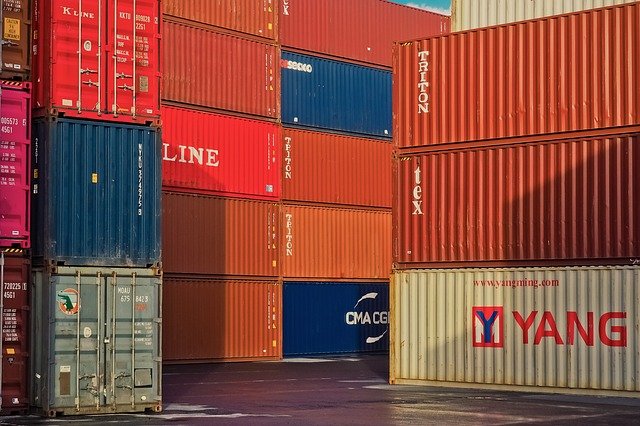
-
The product evaluation report (PER) required before a certificate of origin is issued for export products is now valid for only 3 years instead of the previous 5
-
The Philippine Exporters Confederation, Inc. decried the new policy, saying there is no need for additional evaluation of existing products
-
AOCG Memo 67-2021 dated February 5 ruled that exporters who previously applied for a PER that has lapsed the three-year validity period must re-apply for updated evaluation
-
Exporters have two months from date of publication of AOCG Memo 67-2021 to comply with the product evaluation requirement; otherwise, no CO can be issued
The validity of the product evaluation report (PER), a requirement before export products can be issued a certificate of origin (CO), has been lowered to three years from the previous five under Bureau of Customs (BOC) Assessment and Operations Coordinating Group (AOCG) Memo No. 67-2021.
Philippine Exporters Confederation, Inc. assistant vice president for advocacy and communications Ma. Flordeliza Leong, in a text message to PortCalls, decried the new policy.
“Reducing the validity period from five to three years is inconsistent with the earlier BOC pronouncement that it is for trade facilitation,” she said. “If the product is new or has modifications, we understand that it will have to go through the process, with the ruling effective for five years unless there are changes again.”
But she said that for existing items with the same specifications, “there should be no need for additional evaluation. This brings in the need for a database to be developed as reference, like a green lane system.”
Under AOCG Memo 67-2021, dated February 5, exporters who had previously applied for a PER that has lapsed the three-year validity period must re-apply for an updated evaluation of the report.
Previously, the PER was valid for five years under Customs Memorandum Order (CMO) No. 15-2019, which was issued in 2019 and provides operational procedures for implementation of the Association of Southeast Asian Nations (ASEAN) electronic CO.
RELATED READ: BOC moves forward with TradeNet, releases operational rules
An export product is required to be pre-examined and issued a PER by the Export Coordination Division (ECD) to determine if it qualifies for a CO, according to AOCG Memo 67-2021.
A PER is a document that contains results of the pre-evaluation of export products applying for CO after complying with BOC requirements.
It is in accordance with the Rules of Origin (ROO) set under Operational Certification Procedures of various free trade agreements (FTA), and in keeping with Administrative Provision No. 2 of CMO 02-2010, which provides rules strengthening functions of the ECD.
For provincial exporters
Meanwhile, AOCG deputy commissioner Edward James Dy Buco, in a text message to PortCalls, confirmed that exporters outside Metro Manila may still apply for the issuance of COs with the Export Division (ED) of their local collection districts, as provided under AOCG Memo 228-2020 issued last year.
READ: BOC clarifies where exporters may seek pre-evaluation for CO issuance
For locally produced and/or wholly obtained export products (which do not require PER), self-declaration by the exporter, manufacturer, and/or trade exporting under various FTAs will be used as basis when applying for the issuance of a CO in compliance with existing laws and rules.
Exporters are given two months from the date of publication of AOCG Mem 67-2021 to comply with the product evaluation requirement; otherwise, no CO will be issued.
Under CMO 02-2010, the ECD should exercise oversight functions on all activities related to the issuance and utilization of COs, whether unilateral, bilateral, regional, or multilateral.
The ECD also has the responsibility to pre-evaluate all exporters and their export products for CO issuance, regardless of where export declarations are processed and regardless of ports of loading.
Authorized issuance of COs can also be delegated by the ECD chief to the ED or its equivalent unit in collection districts where export declarations are processed, provided products exported have a pre-approved evaluation from the ECD chief.
A CO is a document declaring which country a commodity or good was manufactured, and is required by many treaty agreements for cross-border trade so as to determine whether certain goods are eligible for import, or whether goods are subject to duties.
Under Customs Administrative Order (CAO) No. 08-2020, any exporter may apply for the issuance of CO, with or without preferential tariff treatment, through a system allowing the electronic exchange of CO among respective free trade areas. If the system is not yet available, CO in paper form should be issued.
BOC or any designated government agency may determine the origin of goods for export and may carry out proper examination, if warranted. After verification, the CO may be issued by BOC, or by any concerned special economic and/or Freeport zone authority with BOC’s concurrence.
Currently, Filipino exporters intending to export goods within the ASEAN have the option to apply for an electronic CO (e-CO) via the new national single window, TradeNet, to secure preferential tariffs under the ASEAN Trade in Goods Agreement.
BOC in September 2020 also issued CMO 24-2020, which laid out guidelines for executing the newly enforced self-certification scheme within ASEAN. The certified exporter status may be used instead of the CO Form D, as the latter still requires exporters to apply for every shipment manually and only during office hours on regular work days.
READ: BOC implements ASEAN self-certification scheme
Dy Buco said there are currently four certified exporters registered under the ASEAN-wide self-certification scheme. – Roumina Pablo




